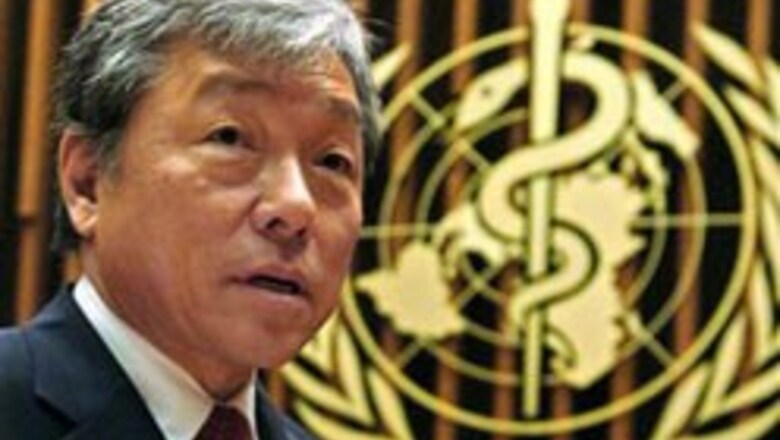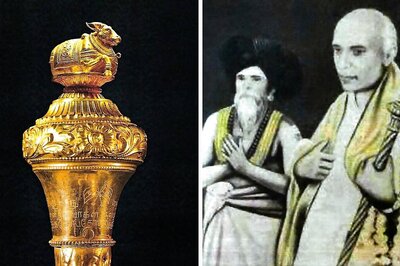
views
Geneva: The World Health Organization's director-general Lee Jong-wook of South Korea died on Monday after surgery to remove a blood clot from the brain, the United Nations agency said.
Lee, 61, had been WHO chief since 2003 and was spearheading the Organization's fight against the global threat of bird flu.
"I am sorry to tell you that Dr Lee Jong-wook, director-general of the WHO, died this morning," Spain's Health Minister Elena Salgado, who was chairing the session, told the opening meeting of the agency's annual assembly.
Her voice trembling, Salgado described Lee as an "exceptional person and an exceptional director-general.
"Under his leadership, the WHO has been strengthened and has been able to give an effective response to world (health) problems," she said before asking delegates from the 192 member states to observe two minutes' silence.
The annual assembly, which runs until Saturday, was then suspended for 30 minutes after which it was due to resume. "We must continue with our work," Salgado said.
Flags at the UN European headquarters, where the assembly was being held, flew at half mast.
WHO officials said acting director-general Anders Nordstrom of Sweden would take over as acting head of the Geneva-based organization until elections for a new chief could be convened.
Lee underwent an operation on Saturday to remove a blood clot at the Cantonal Hospital of Geneva. He had been taken ill suddenly in the afternoon.
The affable South Korean, who liked to pepper his press conferences with jokes, was a keen sportsman with no history of ill-health, officials said.
"There was no warning, no nothing. It was a complete shock," said Iain Simpson, a WHO spokesman.
Before taking over as its head, Lee had worked for the health agency at country and regional level and at the Geneva headquarters for 23 years.
He began in 1983 as an adviser on leprosy for WHO's West Pacific office.
An expert on vaccination, Lee was recognized for his work in the fight against polio, helping lower the global rate of contraction to less than one in 10,000 of world population.
He then became head of the WHO's global program for vaccines and immunizations.
In 2000, Lee became director of STOP TB, a coalition of more than 250 global partners including WHO member states, donors, non-governmental organizations and private foundations.
Lee took office at the head of WHO as it was beginning to win its battle against
SARS -- Severe Acute Respiratory Syndrome -- the highly contagious respiratory disease which killed hundreds of people around the globe after spreading from China.
The South Korean government had hailed Lee's election, the first South Korean to head a major international organization, as a significant step in the country's move into the international arena.
Within a year or so, the world was facing an even greater health threat than SARS in the shape of bird flu, which experts fear could trigger a global pandemic in which millions may perish.
Bird flu is high on the agenda of the annual assembly, which will also debate whether or not to destroy the world's remaining stocks of smallpox as well as Taiwan's long-standing bid to win observership.
Lee is survived by his wife Reiko and a son.




















Comments
0 comment